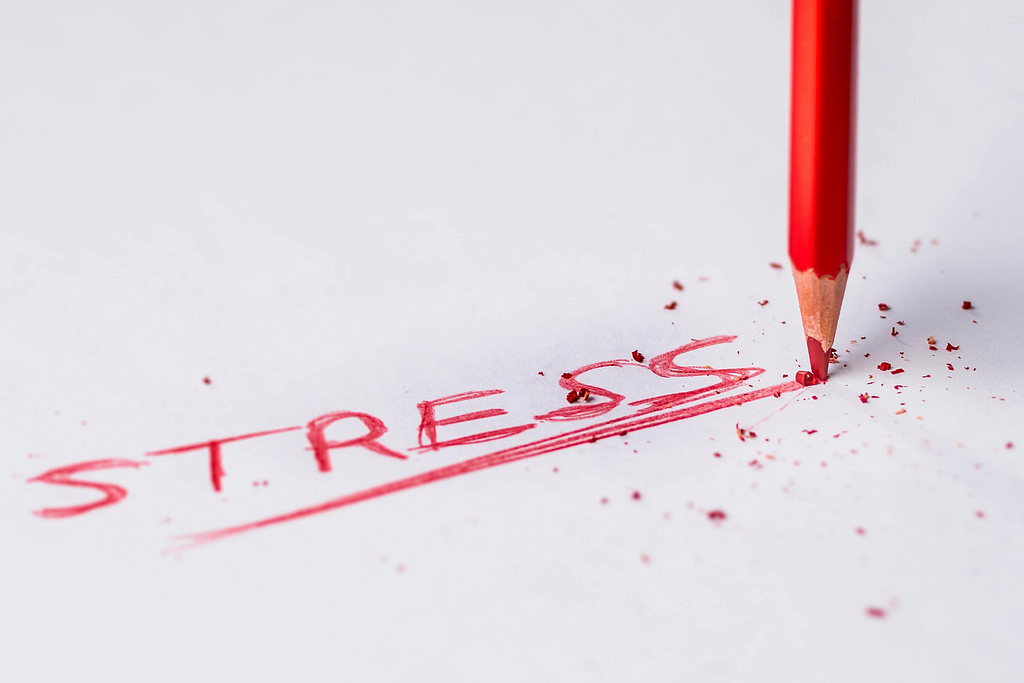

Manage your face.
Leave your emotions at the doorstep.
There’s no place for that here.
You’re too emotional.
You can’t let stress get to you.
God, you’re so sensitive!
I have had all of these things said to me and did not feel good about any of them. I don’t think of myself as a person who has zero control of my emotions. But I’m also not afraid to express myself emotionally. Does this mean I’m constantly crying at work, having outbursts, complaining, or shouting? Of course not. But I also feel like it is sometimes appropriate to express irritation, disagreement, or even anger.
Why? Because life is stressful!
It can feel like there is a never ending stream of inputs. Political news, changes at work, personal life, the endlessly packed calendar, and then there are all of the unplanned issues and events that arise. It can often feel like it’s just enough to push you over the edge. Death by a thousand papercuts.
Take that metaphor seriously for a moment. Imagine a papercut on your hand. It’s a slight annoyance that can be pretty easily addressed with some medicine or just a little time to heal. Now imagine 1,000 papercuts all over your body. The inescapable burning, irritation, tiny bleeds, and the knowledge that you can’t address all of the papercuts at the same time.
What is the mental equivalent of that? When we feel like our brains are on fire, there are too many inputs, we feel like we are losing control of everything around us, and the stress is seemingly or actually overwhelming. It’s bad enough for our mental health, but is it bad for us physically?
I don’t know. So I went searching for the answer.
Dr. Safia Debar, a Mayo Clinic stress management expert tells us that “healthy stress levels help build resilience.” Ok, that makes sense. As parents we try to help our kids build coping skills. We remind them that uncomfortable does not mean unsafe. It seems sensible then that we as adults should continue to develop these same skills and stressors would help us do that.
Dr. Debar notes that when we successfully deal with a stressful situation, we are better prepared the next time a similarly stressful event happens. Our body “shifts to a repair, renew and growth state as the stress response is mopped up.”
The problems happen when your body isn’t able to recover from either the stress input or the number of stress inputs that you experience. In another article from the Mayo Clinic, we are told that “chronic stress can wreak havoc on your mind and body.”
That seems bad.
We can experience bad stress reactions and they can lead to mental and physical symptoms from depression and anxiety to sleeping problems, weight gain, and even heart disease.
In my research for this article, I could not find one source indicating that high levels of chronic stress were a good thing. Not one.
So yes, stress can be bad for you. Chronic stress and high levels of stress are definitely bad for you. So what can you (and I) do about it?
Three things constantly came up as I read about stress and its impact on the human mind and body as counters to stress.
- Exercise/movement.
- Healthy diet.
- Self-care.
Why exercise? “Exercise can improve the function of the HPA axis and in turn improve mood, decrease stress, and modulate anxiety. Yoga in particular may provide anxiety relief” (Over the Counter Anxiety Medication: What are the Best Options, K Health). As a person who exercises regularly (running, indoor cycling, strength, and the occasional yoga session), I understand all too well the things that make it difficult. Time, commitments, and even uncertainty about where to start were huge hurdles for me. The good news is that you can start with the things you already know how to do. Take a walk, research some stretches you can do right at your desk, or look up a bodyweight strength program. Doing something is better than doing nothing and we know exercise is a great way to decrease stress.
Why a healthy diet? When we’re stressed, we are much more likely to reach for the bag of Doritos, our favorite candy bar, or to order a large pizza and accompany it with our favorite adult beverage. All seemingly innocent things to do, and I would certainly be hypocritical if I told you I never “eat some feelings.” It becomes an issue when this is a typical or common response to stress. We already know that chronic stress can impact our weight, our heart, our central nervous system, and our mind. “A balanced diet can support a healthy immune system and the repair of damaged cells” (Stress and Health, Harvard School of Public Health). This is the stress recovery that Dr. Debar talked about.
Why self-care? “If you’re so stressed that you don’t have the time or energy to devote to self-care, that’s when you need replenishment the most!” (De-Stress, Amherst College). Self-care is a broad category but can include what we’ve already talked about (exercise and diet) in addition to other activities that help reduce your stress levels. Maybe it’s listening to your favorite band (Green Day!), spending time with friends, reading a good book, watching a feel good movie, or journaling. This is certainly not an exhaustive list, but each is a great place to start if you aren’t sure where to begin. Again, doing something is better than doing nothing.
Stress is our body using its natural fight or flight response. When we are experiencing chronic or long term stress, our body can be stuck in this mode. Following the steps above can go a long way in helping you with chronic stress.
I’m a believer in talk therapy and managing mental health. I have used talk therapy, medication, and other aspects of assistance available for mental health. While discussing mental health can still feel uncomfortable in the U.S., normalizing conversations about mental health is how we change that. Mental health can sometimes feel like an “other people” or “they” problem. Something that weaker people experience, but not me. Attitudes like that do nothing to advance the conversation around good mental health. If you know someone who could use some assistance, help them find proper resources in their area.
Sometimes a friendly gesture can save a life.
If you’re facing mental health struggles, emotional distress, alcohol or drug use concerns, or just need someone to talk to, 988 Lifeline is available to help. Call, text, or chat. You are not alone. https://988lifeline.org/
